On this page, you can expect to find a comprehensive list of vocabulary related to gardening. You will also find links to games, flashcards, and other resources to help you study and enhance your knowledge in this subject area.
Gardening is a popular hobby that involves the cultivation and care of plants in outdoor spaces, such as gardens, yards, or balconies. It provides a multitude of benefits, including stress relief, physical exercise, and the satisfaction of watching plants grow and flourish. Gardening can also help improve the environment by attracting pollinators and reducing carbon emissions. Whether you are a beginner or experienced gardener, there are endless possibilities for creating a beautiful and sustainable outdoor space.
Practice & Reinforce Your Learning
Gardening Vocabulary List
Vegetable gardening
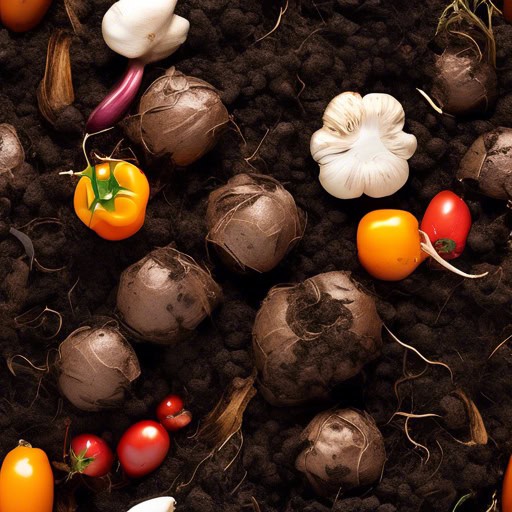
compost(noun)
/kom-pohst/
Compost is a mixture of decomposed organic matter, such as food scraps and yard waste, that is used to enrich soil in vegetable gardening.
Synonyms: fertilizer, mulch, organic matter, soil conditioner, humus
Example Sentences:
- I always make sure to add a layer of compost to my vegetable garden beds before planting in the spring.
- Composting is a great way to reduce waste and create nutrient-rich soil for growing healthy plants.
- My compost pile is full of banana peels, coffee grounds, and leaves that will eventually break down into black gold for my garden.
Word Origin: The word "compost" comes from the Latin word "compositus," which means "put together." In the context of vegetable gardening, compost refers to organic material that has decomposed and can be added to soil to improve its fertility and structure. The process of composting involves mixing together various organic materials such as kitchen scraps, yard waste, and manure, and allowing them to decompose over time. The resulting compost is rich in nutrients and beneficial microorganisms, making it an excellent natural fertilizer for vegetable plants.
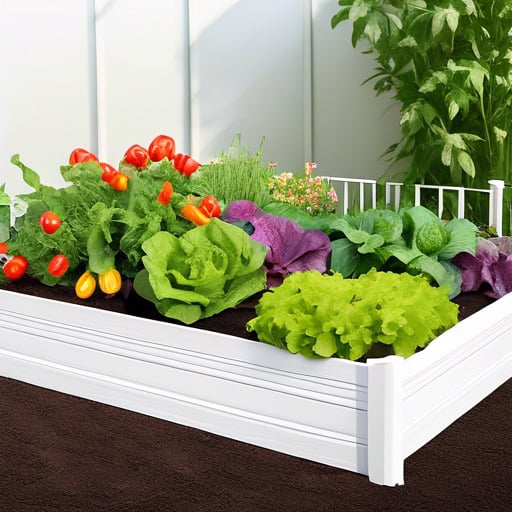
garden bed(Noun)
/gar-den bed/
A garden bed is a designated area of soil where vegetables are planted, typically raised to improve drainage and soil quality.
Synonyms: planter box, raised bed, planting area, vegetable patch, crop plot, growing space, cultivation bed, soil bed, horticultural plot
Example Sentences:
- I spent the afternoon tending to the tomato plants in the garden bed.
- The raised garden bed allowed for better water drainage during heavy rains.
- I planted a variety of herbs and flowers in the garden bed near the patio.
Word Origin: The term "garden bed" in the context of vegetable gardening comes from the Old English word "bedd," which referred to a piece of ground prepared for planting. Over time, the word evolved to specifically refer to a designated area in a garden where plants are grown. The term "garden" itself comes from the Old North French word "gardin," which ultimately traces back to the Latin word "hortus," meaning "enclosed area" or "garden." So, a garden bed in vegetable gardening essentially refers to a designated, prepared area within a garden where vegetables are grown.
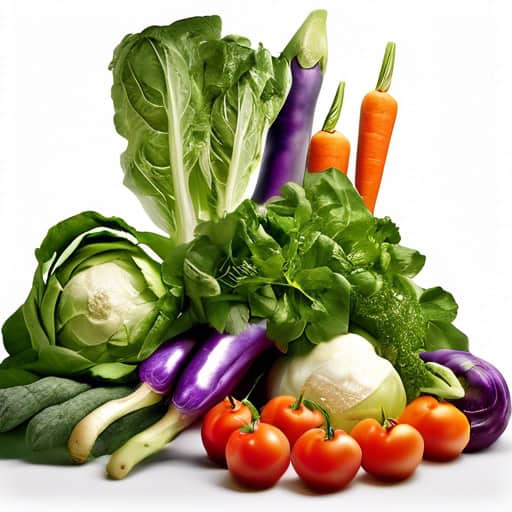
harvesting(Noun)
/har-vest-ing/
Harvesting in vegetable gardening refers to the process of picking ripe vegetables from the plants for consumption or storage.
Synonyms: picking, gathering, collecting, reaping, plucking, gathering, picking, collecting, reaping, plucking
Example Sentences:
- I spent the morning harvesting ripe tomatoes from my garden.
- The farmers were busy harvesting their crops before the storm arrived.
- After weeks of tending to the plants, it was finally time to start harvesting the vegetables.
Word Origin: The word "harvesting" in the context of vegetable gardening comes from the Old English word "hærfest," which originally referred to the season of autumn when crops were gathered. Over time, the word came to refer more specifically to the act of gathering crops from the fields. The term has since been adapted to refer to the process of gathering ripe vegetables from the garden for consumption or storage.
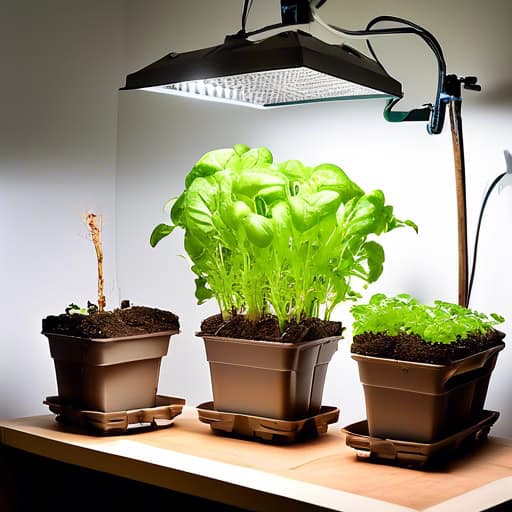
transplanting(Verb)
/Trans-plant-ing/
Transplanting in vegetable gardening refers to the process of moving seedlings from a nursery bed to their final growing location.
Synonyms: replanting, moving, transferring, shifting, relocating
Example Sentences:
- After transplanting the tomato seedlings into the garden, make sure to water them regularly to help them establish roots.
- Transplanting can be a delicate process, so be gentle when handling the seedlings to avoid damaging them.
- It is important to wait until the weather is warm enough before transplanting sensitive plants like peppers or eggplants.
Word Origin: The word "transplanting" in the context of vegetable gardening comes from the Latin word "transplantare," which is derived from the prefix "trans-" meaning "across" or "beyond" and the verb "plantare" meaning "to plant." Therefore, the term "transplanting" refers to the act of moving a plant from one location to another, specifically from a seedling tray or pot to a garden bed or container.
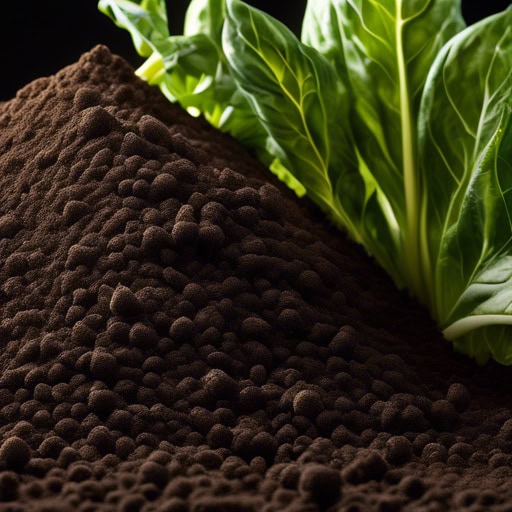
fertilizer(Noun)
/Fer-ti-liz-er/
Fertilizer is a substance added to soil to provide essential nutrients for vegetable plants, promoting growth, health, and productivity.
Synonyms: compost, manure, mulch, nutrients, soil conditioner, plant food
Example Sentences:
- The farmer applied fertilizer to his crops to ensure they received the necessary nutrients for healthy growth.
- The garden center recommended using organic fertilizer for the best results in growing vegetables.
- After using the new fertilizer, the plants in the greenhouse showed significant improvement in size and yield.
Word Origin: The word "fertilizer" comes from the Latin word "fertilis," which means "fruitful" or "productive." In the context of vegetable gardening, fertilizer refers to any substance that is added to soil to improve its fertility and provide essential nutrients to plants, helping them grow and produce a larger yield of vegetables.
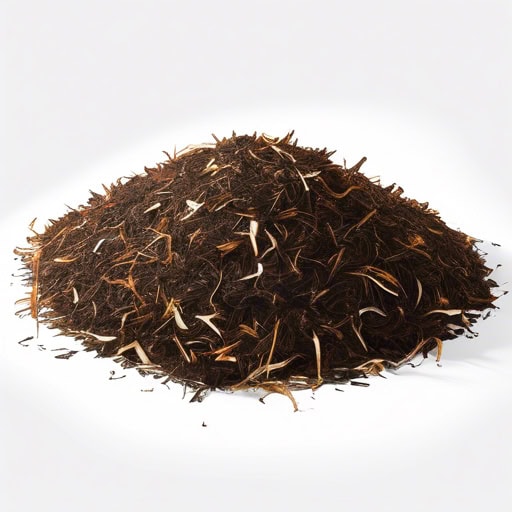
mulch(noun)
/mulch: mul-ch/
Mulch refers to a layer of material, such as straw or leaves, spread over the soil in a vegetable garden to retain moisture and suppress weeds.
Synonyms: compost, organic matter, straw, wood chips, leaves, grass clippings, bark, peat moss, manure
Example Sentences:
- The gardener spread a thick layer of mulch around the base of the tomato plants to help them retain moisture and prevent weeds from growing.
- In the fall, it is important to cover the garden beds with mulch to protect the soil and provide insulation for the plants during the winter months.
- Mulch can also help to regulate soil temperature and improve the overall health of the garden by providing a barrier between the plants and harsh weather conditions.
Word Origin: The word "mulch" is derived from the Middle English word "molsh," which means "soft, moist, or wet." This Middle English word is believed to have originated from the Old English word "meolc," meaning "soft or pulpy substance." In the context of vegetable gardening, mulch refers to a layer of material spread over the soil surface to help retain moisture, suppress weeds, and improve soil health.
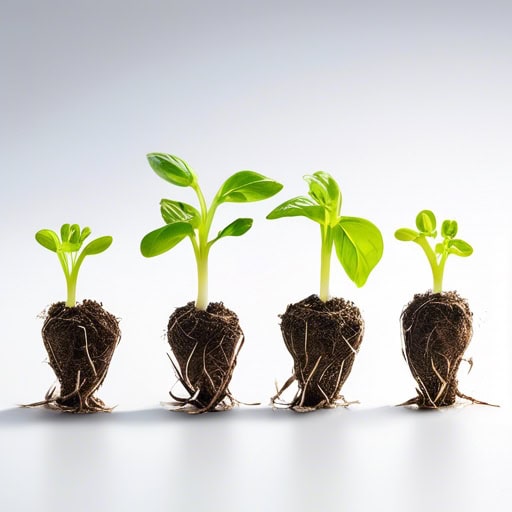
seedlings(Noun)
/seedlings: seed-lings/
Seedlings are young plants that have recently sprouted from seeds and are typically ready to be transplanted into the garden.
Synonyms: sprouts, young plants, seed starters, seedlings, baby plants, plant starts
Example Sentences:
- The seedlings in the greenhouse are thriving under the grow lights.
- I carefully watered the delicate seedlings in the vegetable garden.
- It's important to protect the seedlings from pests and harsh weather conditions.
Word Origin: The word "seedlings" comes from the Middle English word "sedling," which is derived from the Old English word "sedling," meaning "young plant grown from seed." The word "seed" itself comes from the Old English word "sed," which is related to the Old High German word "sāt" and the Latin word "sēmen," all meaning "seed." In the context of vegetable gardening, "seedlings" refers to young plants that have germinated from seeds and are ready to be transplanted into the garden.
Flower gardening
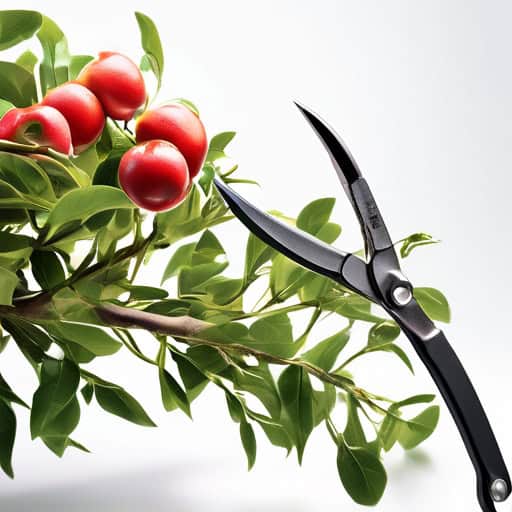
pruning(Verb)
/pru-ning/
Pruning in flower gardening involves trimming or cutting back dead or overgrown plant material to promote healthier growth and aesthetics.
Synonyms: trimming, cutting back, shaping, clipping, shearing, tidying
Example Sentences:
- The gardener spent the morning pruning the overgrown bushes in the front yard.
- Pruning is an essential task to maintain the health and appearance of trees and shrubs.
- I need to schedule some time this weekend for pruning the fruit trees in the orchard.
Word Origin: The word "pruning" in the context of flower gardening comes from the Middle English word "prunen," which means to trim or cut away. This word is derived from the Old French word "proignier," which means to prune or cut back. The Old French word ultimately comes from the Latin word "pro-," which means forward, and "uniare," which means to join or graft. In flower gardening, pruning refers to the act of trimming or cutting away dead or overgrown branches, stems, or leaves to promote healthy growth and flowering.
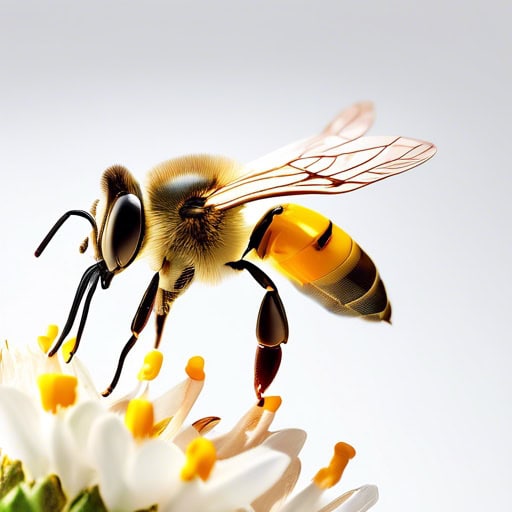
pollination(Noun)
/pol-li-na-tion/
Pollination is the transfer of pollen from the male reproductive organs of a flower to the female reproductive organs.
Synonyms: fertilization, cross-pollination, self-pollination, seed production, reproduction, propagation, blooming, germination, pollinating bees, flower reproduction, flowering process
Example Sentences:
- The process of pollination is essential for the reproduction of many plant species.
- Bees play a crucial role in the pollination of flowers by transferring pollen from one flower to another.
- Some plants rely on wind pollination, while others depend on insects like bees and butterflies to carry out the process.
Word Origin: The word "pollination" comes from the Latin word "pollin," which means "fine flour" or "dust." This term was used to describe the process by which pollen is transferred from the male reproductive organs of a flower to the female reproductive organs, leading to fertilization and the production of seeds. In the context of flower gardening, pollination is essential for the reproduction and propagation of plants.
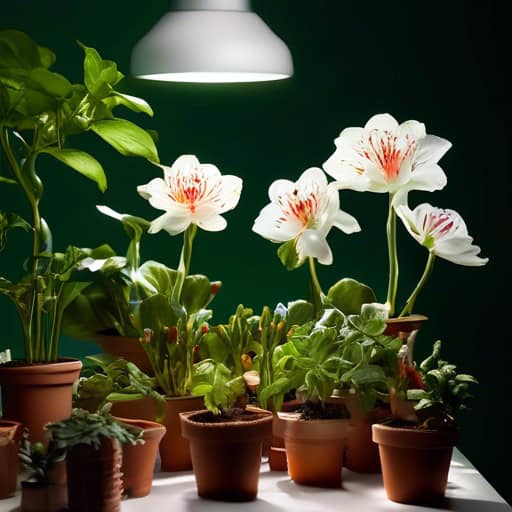
propagation(Noun)
/pro-puh-gey-shuhn/
Propagation in flower gardening refers to the process of creating new plants from existing ones through methods like cuttings or seeds.
Synonyms: breeding, reproduction, cultivation, expansion, growth, spread, reproduction, cultivation, expansion, growth, spread
Example Sentences:
- The propagation of rumors in the workplace can lead to a toxic environment.
- The propagation of plants in the garden requires proper care and attention.
- Social media platforms have become powerful tools for the propagation of information and misinformation.
Word Origin: The word "propagation" in the context of flower gardening comes from the Latin word "propagare," which means "to propagate, breed, or reproduce." In flower gardening, propagation refers to the process of reproducing plants either sexually (from seeds) or asexually (from cuttings, division, or grafting) in order to create new plants.

deadheading(Verb)
/dead-heading: ded-hed-ing
flower: flow-er
gardening: gar-den-ing/
Deadheading is the practice of removing spent or faded flowers from plants to encourage new growth and prolong blooming.
Synonyms: pruning, cutting, trimming, removing spent blooms
Example Sentences:
- 1. After the roses finished blooming, I spent the morning deadheading them to encourage new growth.
- 2. Deadheading the marigolds regularly will help prolong their blooming period throughout the summer.
- 3. The gardener explained the importance of deadheading to prevent the plants from wasting energy on producing seeds.
Word Origin: The term "deadheading" in the context of flower gardening comes from the practice of removing dead or faded flowers from a plant in order to encourage new growth and prolong the blooming period. The word "deadhead" originally referred to a person who traveled on a transportation system without paying, but in the context of gardening, it has been adapted to describe the act of removing dead flower heads. It is believed to have originated in the mid-20th century.
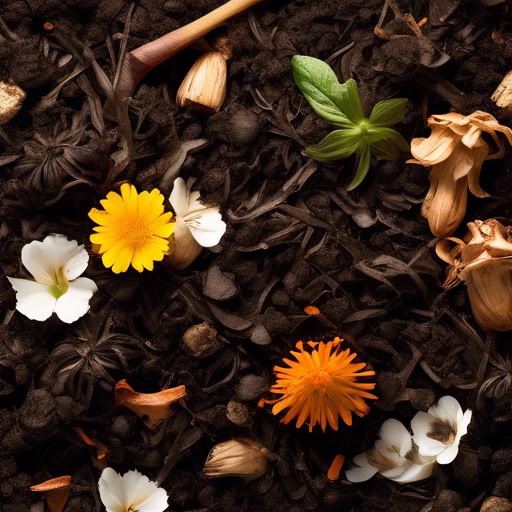
compost(Noun)
/com-post/
Compost is a mixture of decaying organic matter, such as kitchen scraps and yard waste, used to enrich soil in flower gardening.
Synonyms: fertilizer, mulch, soil conditioner, humus, organic matter, nutrient-rich material
Example Sentences:
- I like to use compost in my garden to enrich the soil and help my plants grow.
- After gathering food scraps and yard waste, I layer them in a compost bin to create nutrient-rich soil.
- Composting is a great way to reduce waste and create sustainable gardening practices.
Word Origin: The word "compost" comes from the Latin word "compositus," which means "put together." In the context of flower gardening, compost refers to the mixture of decayed organic material, such as leaves, kitchen scraps, and other plant matter, that is used to enrich the soil and provide nutrients for plants. The process of composting involves breaking down organic material through decomposition, creating a nutrient-rich soil amendment that can improve soil structure and fertility for growing flowers.
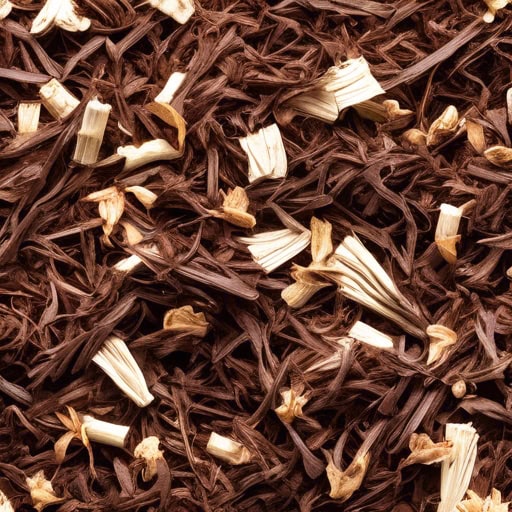
mulch(Noun)
/muhlch/
Mulch is a layer of material, such as wood chips or straw, spread over soil to retain moisture and suppress weeds.
Synonyms: compost, bedding, covering, topsoil, covering, layering, ground cover, protective layer
Example Sentences:
- I spread a thick layer of mulch around my garden to help retain moisture and suppress weeds.
- The landscapers recommended using mulch to improve the soil quality in our flower beds.
- After planting new trees in the yard, we covered the base with mulch to protect the roots and promote healthy growth.
Word Origin: The word "mulch" comes from the Middle English word "molsh" or "mulsch," which is derived from the Old English word "melsc" or "melsce," meaning "soft" or "pulpy." This ultimately comes from the Old Norse word "mosk," which means "moss." The use of mulch in gardening dates back to ancient times, with early civilizations using materials such as straw, leaves, and manure to cover the soil and help retain moisture and control weeds. In the context of flower gardening, mulch is used to protect plant roots, conserve moisture, and improve soil fertility.
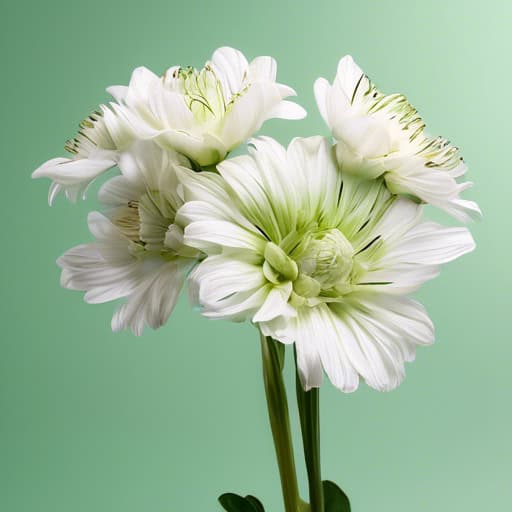
annual(Adjective)
/an-yoo-uhl/
An annual plant in flower gardening is a plant that completes its life cycle in one growing season.
Synonyms: yearly, perennial, seasonal, biennial
Example Sentences:
- The company holds its annual meeting in the spring.
- We look forward to the annual neighborhood block party.
- The school's annual fundraiser was a huge success.
Word Origin: The word "annual" in the context of flower gardening comes from the Latin word "annus," meaning "year." In this context, an annual plant is one that completes its life cycle, from germination to seed production, within one growing season or year. These plants typically need to be replanted each year in order to continue growing and flowering.
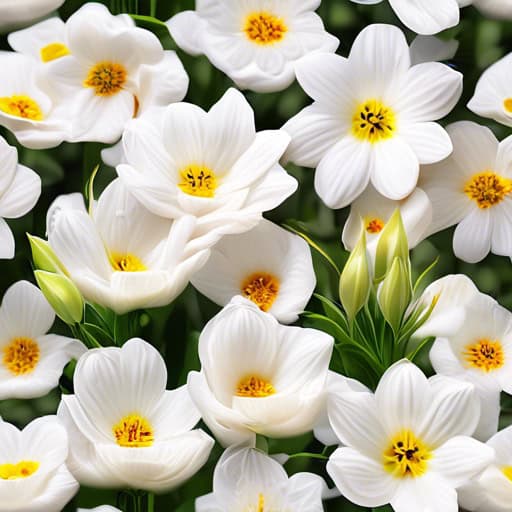
perennial(Adjective)
/per-EN-ee-ul/
A perennial in flower gardening refers to a plant that lives for more than two years and blooms annually.
Synonyms: everlasting, enduring, constant, perennial, lasting, abiding, continuing, persistent
Example Sentences:
- The perennial flowers in her garden bloomed beautifully every spring.
- His perennial optimism helped him overcome many obstacles in life.
- The team's perennial dominance in the league has made them a formidable opponent for years.
Word Origin: The word "perennial" comes from the Latin word "perennis," which means "lasting through the year" or "continuing for an indefinite period." In the context of flower gardening, perennial plants are those that live for more than two years, typically returning each year without needing to be replanted.
Herb gardening
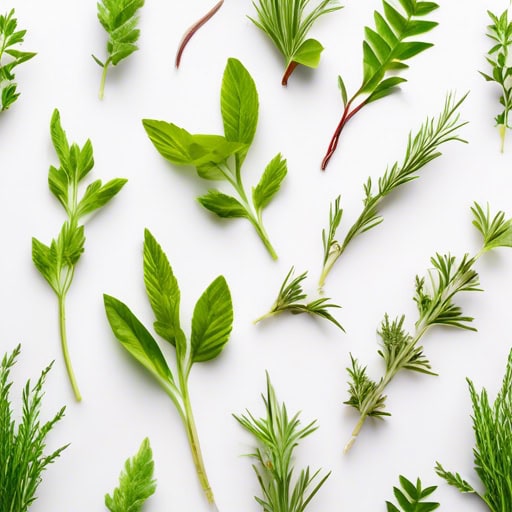
herbaceous(Adjective)
/herbaceous - hur-bay-shus/
Herbaceous refers to plants with soft, green stems that die back to the ground each year, typically grown for culinary or medicinal purposes.
Synonyms: leafy, green, grassy, vegetative, plant-based, floral, botanical
Example Sentences:
- The herbaceous aroma of fresh basil filled the kitchen as I chopped it for the pasta sauce.
- The herbaceous plants in the garden added a vibrant splash of green to the landscape.
- I love the herbaceous taste of cilantro in my homemade salsa.
Word Origin: The word "herbaceous" comes from the Middle English word "herbaceous" and the Latin word "herbaceus," both of which mean "pertaining to herbs." In the context of herb gardening, "herbaceous" refers to plants that have soft, green stems and leaves, as opposed to woody plants which have harder, more rigid stems. Herbaceous plants are typically grown for their culinary, medicinal, or aromatic properties.
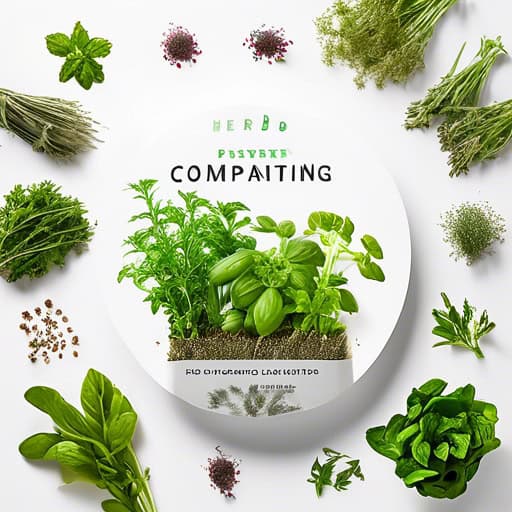
companion planting(Noun)
/com-pan-yun plan-ting/
Companion planting in herb gardening refers to the practice of planting different herbs together to benefit each other's growth.
Synonyms: intercropping, mixed planting, polyculture, guild planting, beneficial planting
Example Sentences:
- Companion planting is the practice of planting different crops near each other to benefit from their mutual characteristics.
- For example, planting marigolds alongside tomatoes can help deter pests and improve crop yield.
- Some common companion planting combinations include pairing basil with tomatoes and planting corn with beans to promote healthy growth.
Word Origin: The term "companion planting" in the context of herb gardening originates from the Middle English word "companion," which comes from the Old French word "compagnon," meaning "one who breaks bread with another." In this sense, companion planting refers to the practice of planting different herbs or plants together in close proximity to enhance their growth and health by providing mutual benefits, such as pest control, pollination, and nutrient sharing.
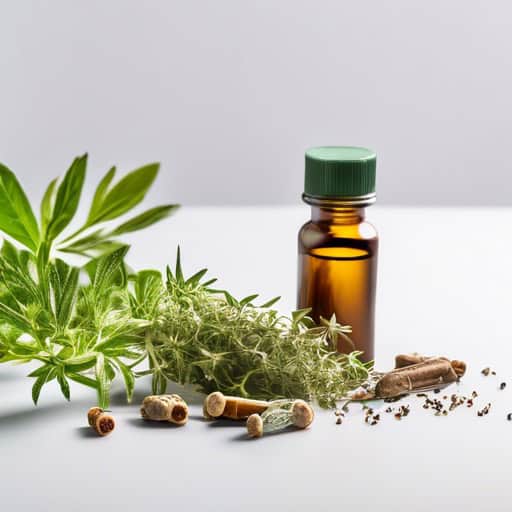
medicinal(Adjective)
/med-i-sin-al/
Medicinal refers to plants grown for their healing properties, used to treat various ailments and promote overall health and wellness.
Synonyms: healing, therapeutic, curative, remedial, salutary, healthful, restorative, palliative, tonic, nourishing
Example Sentences:
- The doctor prescribed a medicinal tea to help soothe my sore throat.
- I prefer using medicinal herbs and natural remedies over pharmaceutical drugs.
- The ancient civilization used medicinal plants to treat various ailments and diseases.
Word Origin: The word "medicinal" comes from the Latin word "medicus," meaning "healing" or "physician." In the context of herb gardening, "medicinal" refers to plants that have healing properties and are used for medicinal purposes. These plants are often grown specifically for their medicinal qualities and are used in traditional medicine practices around the world.
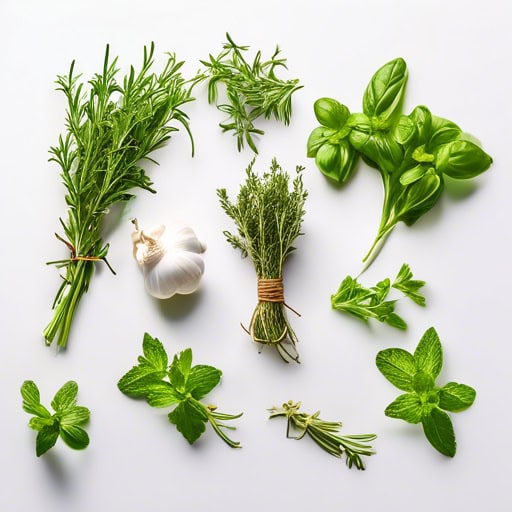
culinary(Adjective)
/cu-li-na-ry/
Culinary in herb gardening refers to plants grown for their edible qualities, such as herbs used for flavoring food.
Synonyms: cooking, gastronomic, epicurean, kitchen, edible, foodie
Example Sentences:
- The culinary program at the community college offers classes in baking, pastry, and international cuisine.
- I have always had a passion for culinary arts and enjoy experimenting with new recipes in the kitchen.
- The restaurant received rave reviews for its culinary creations that blend traditional flavors with modern techniques.
Word Origin: The word "culinary" comes from the Latin word "culinarius," which means "of the kitchen." It is derived from the Latin word "culina," which means "kitchen" or "cooking area." In the context of herb gardening, "culinary" refers to herbs that are used for cooking or adding flavor to food. These herbs are typically grown in kitchen gardens or herb gardens to be harvested and used in culinary dishes.
Container gardening
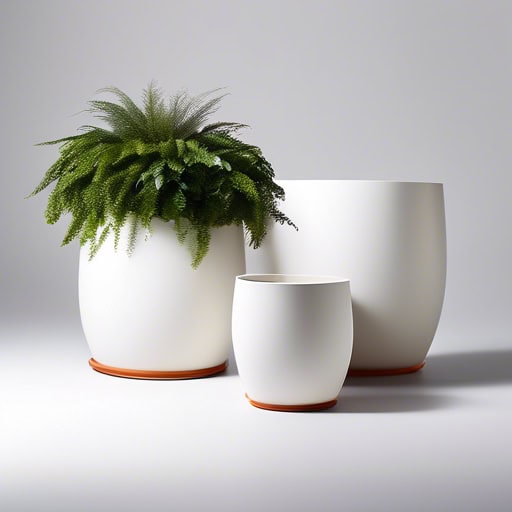
Planters(Noun)
/Plan-ters/
Planters are containers specifically designed for growing plants, providing adequate space for roots and soil while allowing for drainage.
Synonyms: pots, containers, troughs, boxes, baskets, urns, tubs, vessels, plant holders
Example Sentences:
- The planters in the backyard are filled with colorful flowers and herbs.
- Planters filled with succulents line the windowsill of the kitchen.
- We bought new planters to repot our houseplants and give them more room to grow.
Word Origin: The word "planters" in the context of container gardening comes from the verb "to plant," which ultimately derives from the Latin word "planta," meaning a shoot or cutting. In the context of container gardening, planters refer to the containers or pots in which plants are grown. The term has been used in this way since at least the 18th century.
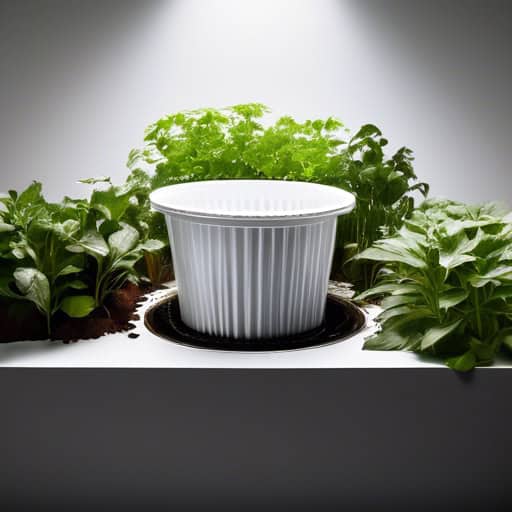
Drainage(Noun)
/Drain-age: Drehn-ij/
Drainage in container gardening refers to the ability of excess water to flow out of the container to prevent root rot.
Synonyms: runoff, seepage, irrigation, flow, overflow, discharge, percolation, leakage, filtration, spillage
Example Sentences:
- The city implemented a new drainage system to help prevent flooding in low-lying areas.
- The farmers decided to dig trenches to improve the field's drainage and prevent waterlogging.
- The clogged drainage pipes caused water to back up and flood the basement.
Word Origin: The word "drainage" comes from the Old French word "drain," which is derived from the Latin word "drainare," meaning "to draw off." In the context of container gardening, drainage refers to the process of allowing excess water to flow out of the container to prevent waterlogged soil and ensure proper oxygenation for the plant roots. This is essential for the health and growth of plants in containers, as excessive moisture can lead to root rot and other problems. Proper drainage is typically achieved through the use of drainage holes in the bottom of the container and the use of well-draining potting mix.
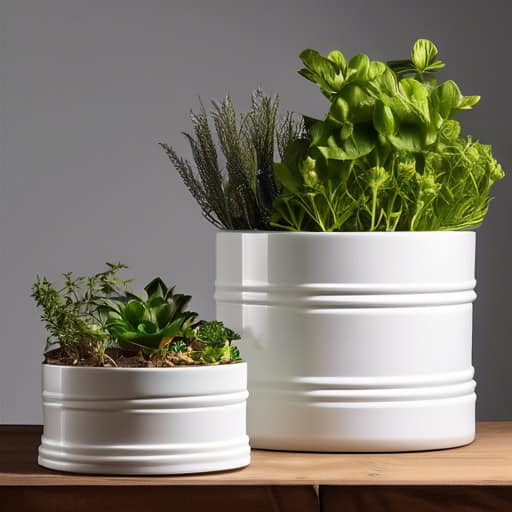
Container(Noun)
/Con-tain-er/
A container in the context of container gardening is a vessel, such as a pot or planter, used to hold plants.
Synonyms: pot, planter, box, vessel, basket, bin, tub, trough
Example Sentences:
- The container was filled with fresh fruits and vegetables from the farmers' market.
- Please make sure to label each container with the correct item before storing them in the pantry.
- The shipping company uses durable containers to transport goods across the ocean.
Word Origin: The word "container" comes from the Latin word "contineri," which means "to hold together" or "to contain." In the context of container gardening, the term refers to a vessel or receptacle that holds soil and plants for growing in a confined space, such as a pot, planter, or box.
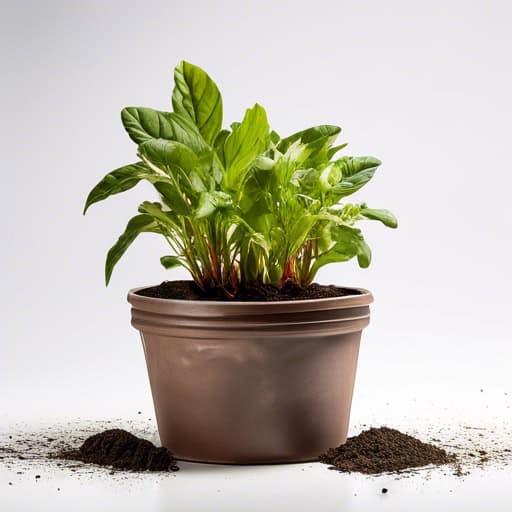
Potting mix(Noun)
/Pot-ting mix/
Potting mix is a soil mixture specifically formulated for container gardening, providing necessary nutrients and drainage for healthy plant growth.
Synonyms: soil, planting medium, growing medium, compost, potting soil, potting media, container mix
Example Sentences:
- I bought a bag of potting mix to repot my houseplants.
- The potting mix I used for my outdoor garden was specifically formulated for vegetables.
- Make sure to use a well-draining potting mix to prevent root rot in your succulents.
Word Origin: The word "potting mix" comes from the combination of "potting," which refers to the act of placing a plant in a container, and "mix," which refers to the blend of materials used in creating a growing medium for the plant. In the context of container gardening, potting mix is a specially formulated blend of organic matter, such as peat moss or compost, along with perlite or vermiculite for drainage and aeration. The term "potting mix" has been used since the early 20th century to describe the soil-like substance used in containers for growing plants.
Organic gardening
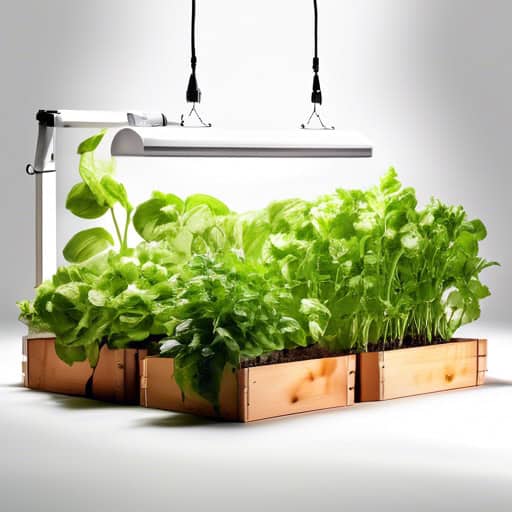
Organic(Adjective)
/Or-gan-ik/
Organic gardening refers to a method of growing plants without the use of synthetic chemicals, pesticides, or fertilizers.
Synonyms: natural, chemical-free, eco-friendly, sustainable, pesticide-free, non-toxic, environmentally friendly
Example Sentences:
- She only buys organic produce from the local farmers' market.
- The company prides itself on using only organic ingredients in their skincare products.
- Eating organic foods can have numerous health benefits.
Word Origin: The term "organic" in the context of organic gardening comes from the Latin word "organicus," which means "relating to an organ or instrument." This term was later adopted into English and has come to refer to anything that is derived from living organisms or produced using natural processes. In the context of organic gardening, "organic" refers to a method of cultivation that avoids the use of synthetic fertilizers, pesticides, and genetically modified organisms, instead relying on natural methods to promote soil health and crop growth.
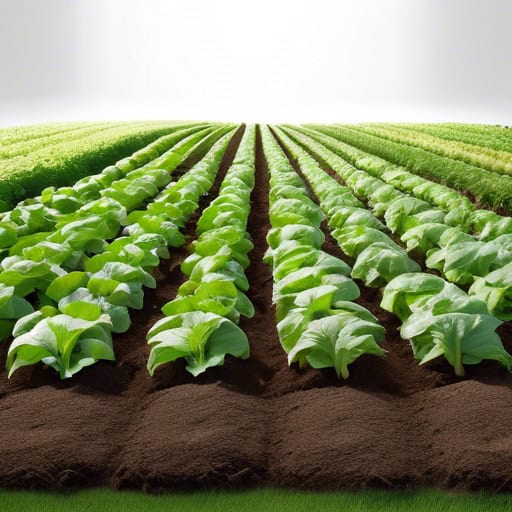
Crop rotation(Noun)
/Crop rotation: /krɒp rəʊˈteɪʃən//
Crop rotation is the practice of changing the type of crops grown in a specific area each season to improve soil health.
Synonyms: Rotation, Plant rotation, Cultivation rotation, Cultivation cycle, Planting cycle, Planting rotation, Field rotation, Soil rotation
Example Sentences:
- Farmers use crop rotation to maintain soil fertility and prevent the buildup of pests and diseases in their fields.
- Crop rotation involves planting different crops in the same area over a period of time to help improve soil quality and yield.
- Implementing a crop rotation schedule can also help reduce the need for chemical fertilizers and pesticides, making farming more sustainable in the long run.
Word Origin: Crop rotation is a farming practice that involves growing different types of crops in the same area in sequential seasons in order to improve soil fertility, control pests, and reduce soil erosion. The term "crop rotation" comes from the Latin word "rota," meaning "wheel" or "turn," and the Old English word "crop," meaning "a plant that is harvested." The concept of rotating crops has been practiced for centuries, with ancient civilizations such as the Romans and Chinese using similar techniques to improve agricultural productivity. In the context of organic gardening, crop rotation is a key component of sustainable farming practices that aim to maintain healthy soil and promote biodiversity.
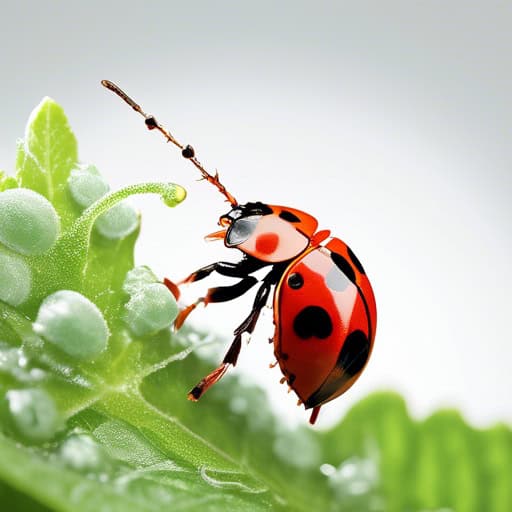
Natural pest control(Noun)
/Nay-chur-uhl pest kuhn-trohl/
Natural pest control in organic gardening involves using natural predators, physical barriers, and companion planting to manage pests without chemicals.
Synonyms: biological pest control, sustainable pest management, eco-friendly pest control, non-toxic pest control, environmentally-friendly pest control, organic pest management
Example Sentences:
- Our garden thrives thanks to the natural pest control methods we use, such as planting marigolds and attracting ladybugs.
- We rely on natural pest control to keep our crops healthy and free from harmful insects, using methods like crop rotation and introducing beneficial nematodes.
- Implementing natural pest control measures not only protects the environment but also ensures a bountiful harvest without the need for harmful chemicals.
Word Origin: The term "natural pest control" in the context of organic gardening originates from the combination of the Old French word "naturel" meaning "in accordance with the laws of nature" and the Latin word "pestis" meaning "plague" or "pest." In organic gardening, natural pest control refers to the use of methods and substances derived from natural sources such as plants, animals, and minerals to manage and control pests in a way that is environmentally friendly and sustainable. This approach avoids the use of synthetic chemicals and instead focuses on working with nature to maintain a healthy balance in the garden ecosystem.
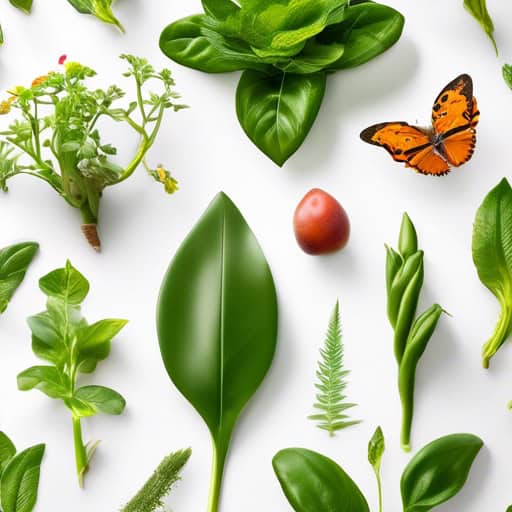
Biodiversity(Noun)
/Bī-ō-dī-vĕr-sĭ-tē/
Biodiversity in organic gardening refers to the variety of plant and animal species present in an ecosystem, promoting ecological balance.
Synonyms: variety, ecological diversity, flora and fauna, genetic variation, ecosystem diversity, species richness
Example Sentences:
- 1. The preservation of biodiversity in the rainforest is crucial for maintaining a healthy ecosystem.
- 2. Climate change poses a threat to global biodiversity by altering habitats and causing species extinction.
- 3. Conservation efforts are being made to protect the rich biodiversity of coral reefs around the world.
Word Origin: The term "biodiversity" is a combination of two words: "bio," meaning life, and "diversity," meaning variety or differences. In the context of organic gardening, biodiversity refers to the variety of different plant and animal species present in a particular ecosystem. This diversity is essential for maintaining a healthy and balanced ecosystem, as each species plays a unique role in the overall functioning of the ecosystem. Organic gardening practices aim to promote biodiversity by avoiding the use of synthetic chemicals and promoting natural processes that support a wide range of plant and animal species.
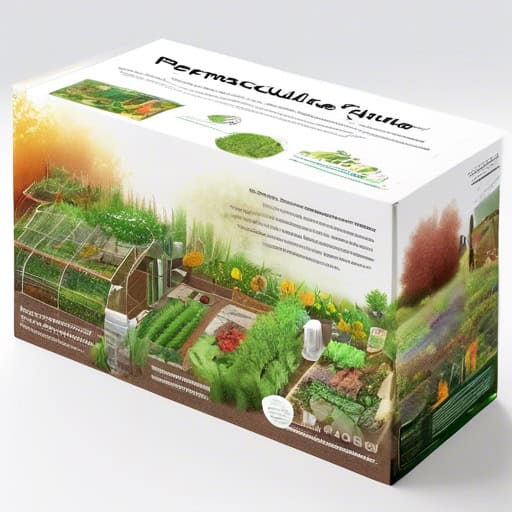
Permaculture(Noun)
/Per-ma-cul-ture/
Permaculture is a sustainable gardening approach that mimics natural ecosystems to create a self-sustaining, regenerative garden with minimal human intervention.
Synonyms: sustainable gardening, regenerative agriculture, ecological gardening, organic farming, agroecology, natural farming, holistic land management, permaculture design
Example Sentences:
- Permaculture is a sustainable design system that focuses on working with nature rather than against it.
- Many people are turning to permaculture as a way to create more self-sufficient and resilient lifestyles.
- The principles of permaculture can be applied to gardening, farming, architecture, and even community planning.
Word Origin: The word "permaculture" is a combination of two words: "permanent" and "agriculture" or "culture." It was coined by Australian ecologists Bill Mollison and David Holmgren in the 1970s to describe a sustainable agricultural design system. The term emphasizes the goal of creating permanent agricultural systems that are both environmentally friendly and economically viable. Permaculture principles are based on mimicking natural ecosystems and using regenerative practices to create self-sustaining food production systems.
Indoor gardening
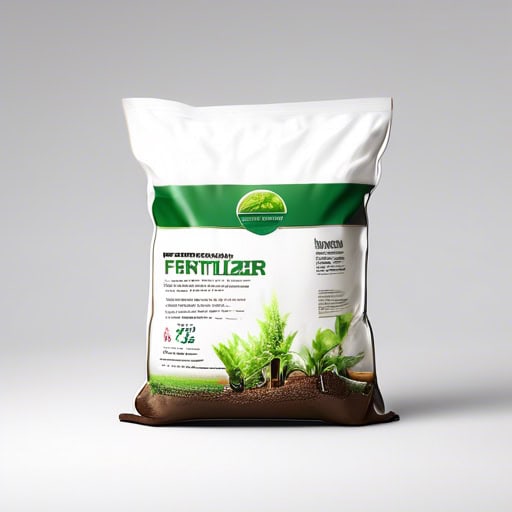
Fertilizer(Noun)
/Fertilizer: Fer-ti-lie-zer/
Fertilizer is a substance added to soil or plants to provide essential nutrients for healthy growth and development in indoor gardening.
Synonyms: compost, plant food, manure, soil conditioner
Example Sentences:
- The farmer spread fertilizer on his fields to help his crops grow.
- The garden center sells a variety of fertilizers for different types of plants.
- The golf course superintendent applied fertilizer to the fairways to keep the grass lush and green.
Word Origin: The word "fertilizer" comes from the Latin word "fertilis," meaning "fruitful" or "productive." In the context of indoor gardening, fertilizer refers to substances that are added to soil or plants to provide essential nutrients for growth and development. Fertilizers can come in various forms, including organic materials such as compost or manure, as well as synthetic chemicals.
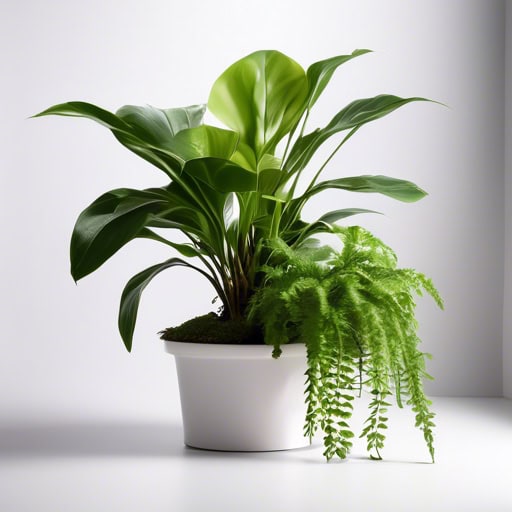
Indoor plants(Noun)
/In-door plants: In-dor plants/
Indoor plants are plants that are grown inside buildings, typically for decorative purposes, to improve air quality, and create a peaceful environment.
Synonyms: houseplants, potted plants, indoor greenery, interior plants, indoor foliage
Example Sentences:
- Indoor plants require regular watering and proper sunlight to thrive.
- I enjoy decorating my home with various indoor plants to create a cozy atmosphere.
- Some popular indoor plants include succulents, pothos, and peace lilies.
Word Origin: The term "indoor plants" is a compound word that combines "indoor," meaning situated or designed to be used inside a building, and "plants," referring to living organisms that typically grow in soil and have stems, leaves, and roots. In the context of indoor gardening, the term specifically refers to plants that are grown indoors, usually for decorative or aesthetic purposes. The practice of growing plants indoors has become increasingly popular as a way to bring nature into indoor spaces and improve air quality.
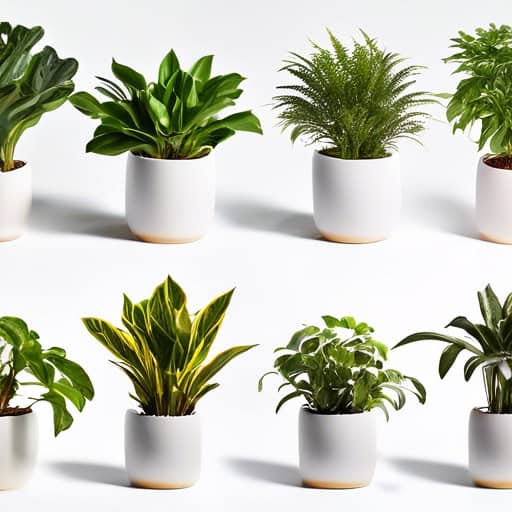
Potted plants(Noun)
/Potted plants: pot-ed plants/
Potted plants are plants grown in containers indoors, typically for decorative purposes, allowing for easier maintenance and versatility in placement.
Synonyms: houseplants, indoor plants, container plants, foliage plants, pot plants, planters, plant pots
Example Sentences:
- I love decorating my balcony with colorful potted plants.
- She placed several potted plants around her living room to create a cozy atmosphere.
- The outdoor patio was filled with beautiful potted plants in various shapes and sizes.
Word Origin: The term "potted plants" comes from the word "pot," which has been used to refer to a container for plants since the 14th century. The word "pot" itself has Old English and Old Norse origins, ultimately deriving from the Latin word "pottus" meaning "a drinking cup." The addition of "ed" to form "potted" likely comes from the practice of placing plants in pots for cultivation, creating the term "potted plants" to signify plants grown in containers indoors.
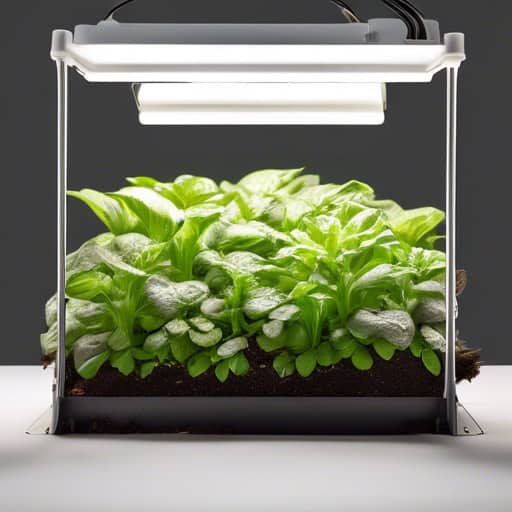
Soilless(Adjective)
/Soil-less: "soi-lles"/
Soilless refers to growing plants without the use of traditional soil, often utilizing alternative substrates like perlite, vermiculite, or coco coir.
Synonyms: hydroponic, aeroponic, aquaponic, substrate-free, medium-less, water-based, soil-free
Example Sentences:
- Growing plants in a soilless medium can help prevent soilborne diseases.
- Hydroponic systems use soilless growing techniques to cultivate crops efficiently.
- Soilless gardening is gaining popularity among urban dwellers looking to grow their own fresh produce.
Word Origin: The word "soilless" in the context of indoor gardening comes from the combination of the word "soil" and the suffix "-less," which means "without." In indoor gardening, soilless growing techniques involve using alternative growing mediums such as coco coir, perlite, vermiculite, peat moss, or hydroponic systems that do not rely on traditional soil for plant growth.
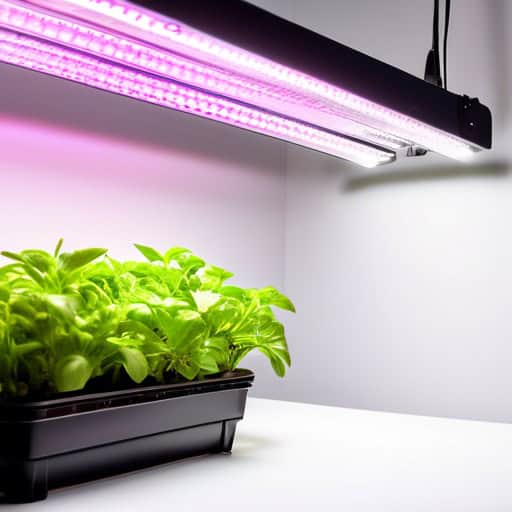
Grow light(Noun)
/grow light: groʊ laɪt/
A grow light is a type of artificial light source designed to stimulate plant growth in indoor gardening settings.
Synonyms: fluorescent light, LED grow light, plant light, indoor grow light, horticultural light, full spectrum light, artificial light, grow lamp, grow bulb
Example Sentences:
- The grow light in the greenhouse provides the necessary spectrum for optimal plant growth.
- I need to adjust the height of the grow light to ensure all the plants receive adequate light.
- Investing in a high-quality LED grow light can significantly improve the yield of your indoor garden.
Word Origin: The term "grow light" is a compound word made up of "grow," which comes from the Old English word "growan," meaning "to grow, increase, develop," and "light," which comes from the Old English word "liht," meaning "light, daylight." In the context of indoor gardening, a grow light is a type of artificial light source designed to stimulate plant growth by providing the necessary light spectrum for photosynthesis.
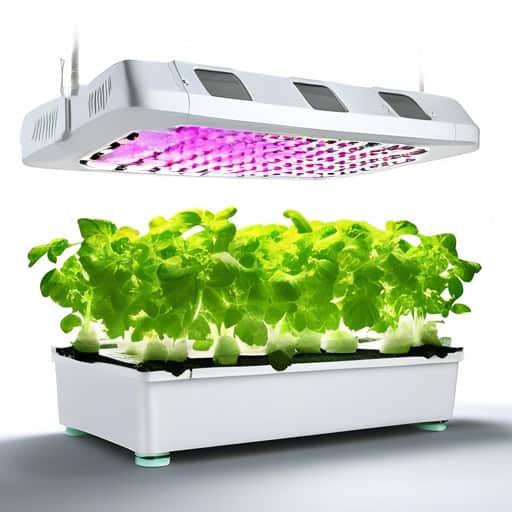
Hydroponics(Noun)
/Hy-dro-pon-iks/
Hydroponics is a method of growing plants without soil, using nutrient-rich water solutions to provide essential nutrients directly to roots.
Synonyms: Aeroponics, Aquaponics, Indoor farming, Soilless gardening, Vertical farming, Container gardening
Example Sentences:
- Hydroponics is a method of growing plants without soil, using nutrient-rich water instead.
- Many farmers are turning to hydroponics as a more sustainable and efficient way to grow crops.
- The hydroponics system in the greenhouse allows for better control over plant growth and nutrient uptake.
Word Origin: The word "hydroponics" is derived from the Greek words "hydro," meaning water, and "ponos," meaning labor. It was first coined by Dr. William Frederick Gericke in the 1930s, who is considered the father of modern hydroponics. The term refers to the method of growing plants without soil, using nutrient-rich water solutions instead. In the context of indoor gardening, hydroponics allows plants to thrive in controlled environments without the need for traditional soil-based gardening methods.
Garden Tools
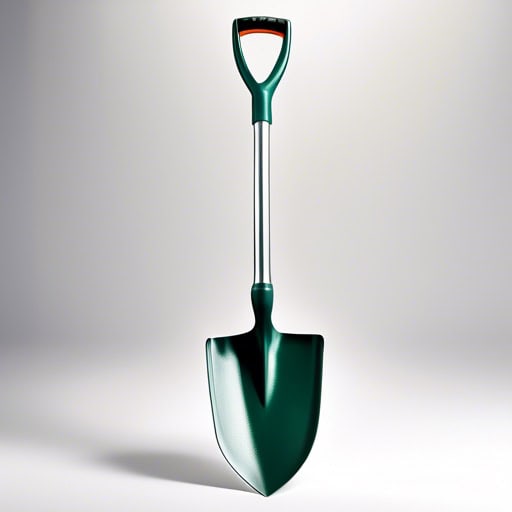
shovel(Noun)
/shov-el/
A tool with a flat blade and long handle used for digging, lifting, and moving soil, compost, or other materials in gardening.
Synonyms: spade, scoop, trowel, digger, garden spade, shovel, hand shovel, garden trowel
Example Sentences:
- He used a shovel to dig a hole in the backyard.
- After the snowstorm, she grabbed a shovel to clear the driveway.
- The gardener picked up the shovel to plant new flowers in the garden.
Word Origin: The word "shovel" comes from the Old English word "scofl," which means a shovel or spade. This word is derived from the Proto-Germanic word "skuflo," which also means a shovel or spade. The ultimate root of the word is the Proto-Indo-European word "skeubh," which means to push or shove. This is fitting, as a shovel is a tool used to push or move soil, dirt, or other materials.
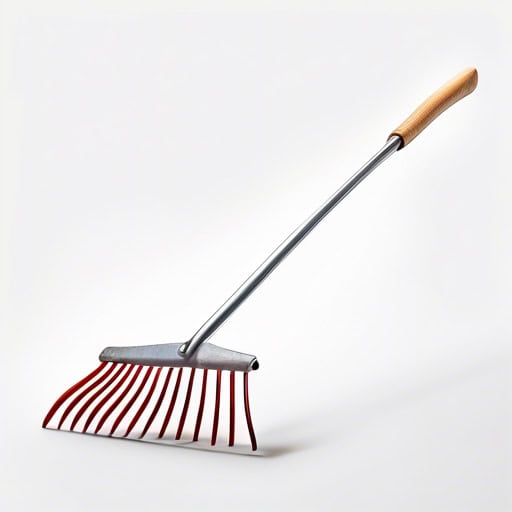
rake(Noun)
/rayk/
A rake is a garden tool with a long handle and a row of metal or wooden teeth used for gathering leaves and debris.
Synonyms: hoe, spade, shovel, trowel, cultivator, fork, mattock, dibber
Example Sentences:
- He used the rake to gather fallen leaves in the backyard.
- After the storm, the rake was essential for cleaning up the debris.
- The gardener carefully raked the soil to prepare it for planting.
Word Origin: The word "rake" in the context of garden tools comes from the Old English word "racu," which meant "rake, implement for drawing or scraping." It is believed to have originated from the Proto-Germanic word "rakon" or "rakaz," which also meant "rake" or "scraper." The word has been used in English since the early Middle Ages to refer to a tool with a row of teeth or tines attached to a long handle, used for gathering leaves, grass, or other debris in a garden or yard.
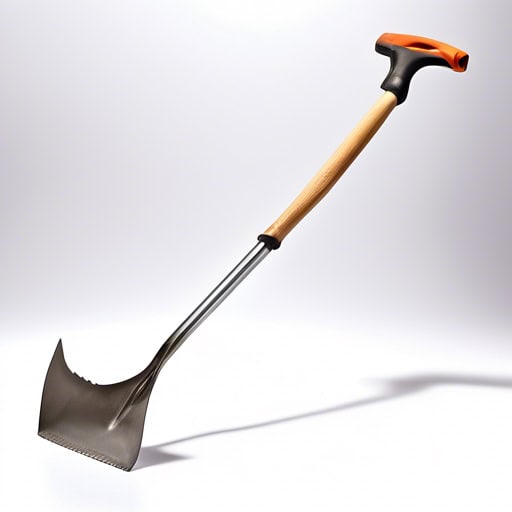
hoe(Noun)
/hoe = hoh/
A hoe is a long-handled gardening tool with a flat metal blade used for cultivating, weeding, and breaking up soil.
Synonyms: spade, rake, trowel, shovel, cultivator, weeder, fork
Example Sentences:
- She used the hoe to break up the hard soil in the garden.
- The farmer grabbed the hoe to start weeding the fields.
- After a long day of work, her hands were sore from gripping the hoe.
Word Origin: The word "hoe" in the context of garden tools comes from the Old English word "haga," meaning "hedge, hawthorn." This evolved into the Middle English word "howe," which referred to a tool used for digging and weeding in gardens and fields. Eventually, the word "hoe" became the standard term for this type of garden tool.
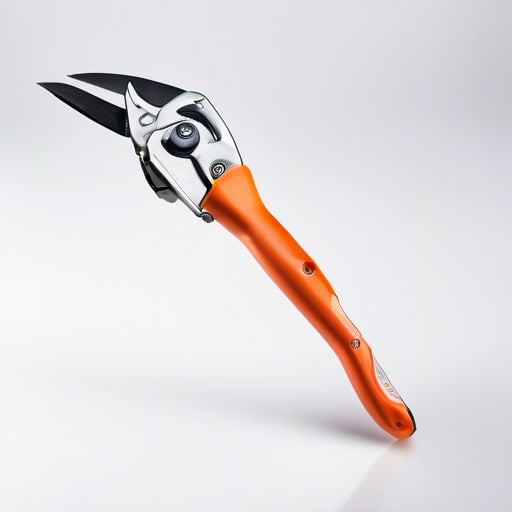
pruner(Noun)
/pru-ner/
A pruner is a handheld gardening tool with sharp blades used to trim and shape plants, trees, and shrubs.
Synonyms: trimmer, shears, clippers, cutter, lopper, scissors, secateurs
Example Sentences:
- 1. The pruner made quick work of trimming back the overgrown bushes in the backyard.
- 2. She carefully selected a new pruner from the store, eager to tackle her unruly garden.
- 3. The experienced gardener used a sharp pruner to shape the trees into beautiful topiaries.
Word Origin: The word "pruner" comes from the verb "prune," which has its origins in Middle English "prunen" or "proine," meaning "to trim or cut off branches, twigs, or other parts of a plant to improve its shape or growth." This Middle English word likely came from Old French "proignier" or "prongnier," which meant "to cut off" or "to trim." The ultimate root of the word is uncertain, but it may have come from a Germanic source related to the Old High German "pfriunen," meaning "to cut off."
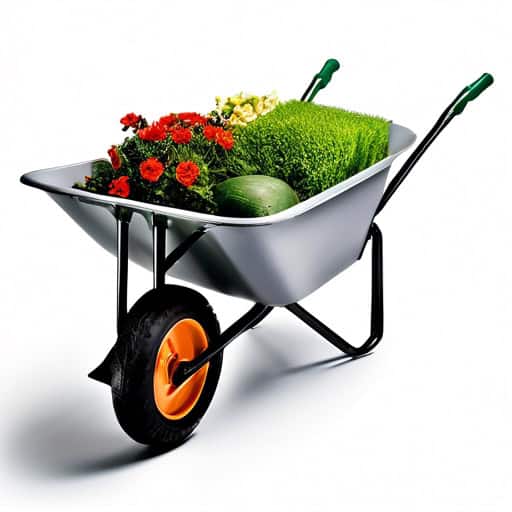
wheelbarrow(Noun)
/wheel-ba-row/
A wheelbarrow is a hand-propelled vehicle with one wheel, designed for carrying heavy loads such as soil, plants, or tools.
Synonyms: cart, handcart, pushcart, garden cart, garden trolley
Example Sentences:
- He pushed the heavy wheelbarrow filled with rocks across the construction site.
- The farmer used a wheelbarrow to transport the harvested vegetables to the storage shed.
- The children took turns pushing each other around in the empty wheelbarrow for fun.
Word Origin: The word "wheelbarrow" is believed to have originated from the Old English word "hweogol" which means "wheel" and the Middle English word "barew" which means "barrow" or "cart". The combination of these two words gave rise to "wheelbarrow" which describes a small cart with one or more wheels used for transporting items such as dirt, plants, or tools in a garden.
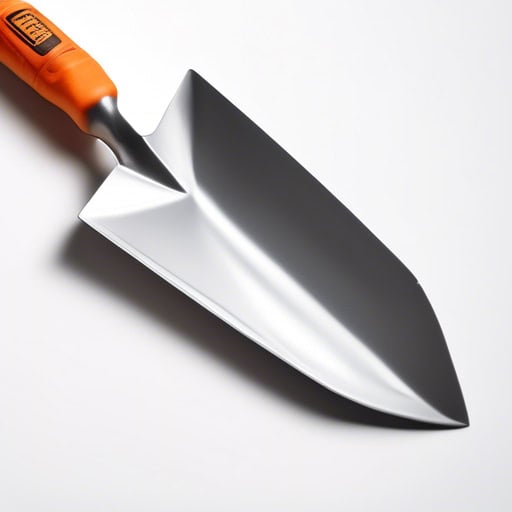
trowel(Noun)
/trow-el/
A trowel is a small handheld tool with a flat, pointed blade used for digging, planting, and smoothing soil in gardening.
Synonyms: spade, shovel, scoop, digger, hand shovel, hand spade
Example Sentences:
- She used the trowel to carefully transplant the delicate seedlings into the garden.
- The bricklayer skillfully spread the mortar with the trowel to ensure a sturdy foundation.
- After mixing the concrete, he used the trowel to smooth out the surface of the sidewalk.
Word Origin: The word "trowel" comes from the Old English word "truwels," which is derived from the Latin word "trulla" meaning a small ladle or spoon. The term was originally used to describe a small, flat tool used for spreading plaster or cement. Over time, the word came to be associated with the hand tool used in gardening for digging, smoothing, and spreading materials such as soil and compost.
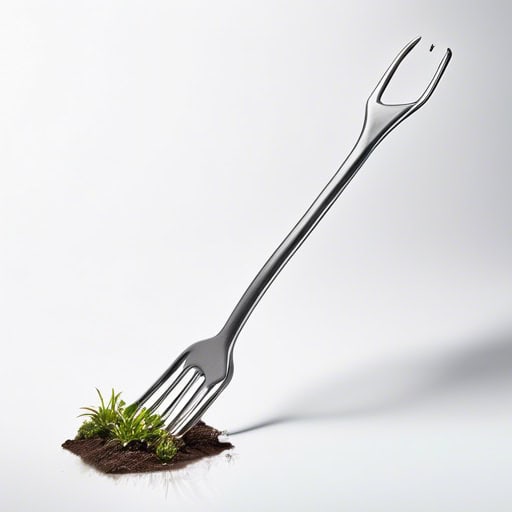
garden fork(Noun)
/gar-den fork: gar-dn fork/
A garden fork is a tool with sturdy, pointed tines used for loosening, turning, and aerating soil in a garden.
Synonyms: pitchfork, digging fork, spading fork, hay fork
Example Sentences:
- I used the garden fork to dig up the weeds in the flower bed.
- My dad always reaches for the garden fork when he needs to turn over the soil in the vegetable patch.
- After using the garden fork to aerate the soil, I planted new seeds in the garden.
Word Origin: The word "garden fork" is derived from the Old English word "forca," which means a forked instrument or tool. Over time, the word evolved to refer specifically to a tool with multiple tines used for digging, loosening, and turning soil in a garden. The term "garden fork" emphasizes the tool's use in gardening and landscaping.
Quick Facts
- Gardening has been proven to reduce stress and improve mental health. The act of caring for plants and being in nature can have a calming effect on the mind.
- Some plants have natural insect-repelling properties, making them perfect for keeping pests away from your garden without the use of harmful chemicals.
- Gardening can be a great form of exercise, as it involves activities such as digging, planting, weeding, and watering that can help improve strength and flexibility.
- Certain plants, like tomatoes and peppers, can actually benefit from being planted next to each other due to their complementary growth habits and pest-repelling properties.
- The practice of companion planting, where specific plants are grown together to benefit each other, has been used for centuries to improve crop yield and deter pests in gardens.
